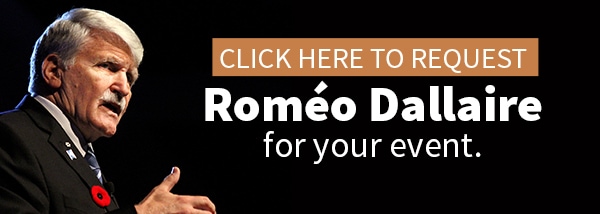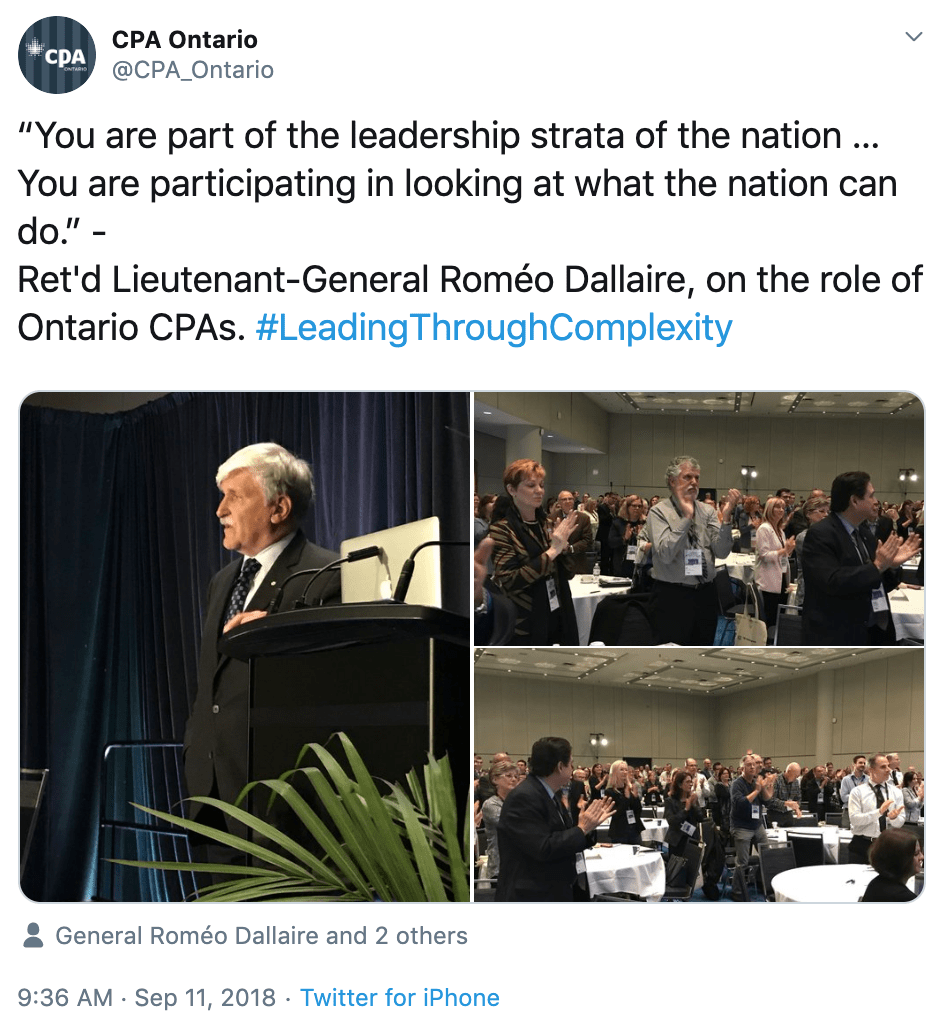Ethical Leadership | Preparing for Ambiguous Scenarios With Roméo Dallaire
The traits of effective leaders are constantly evolving – what is your organization doing to adapt?
From changing government policies to technological disruption, leaders face a constantly shifting landscape. It’s hard to see what’s coming next. In the corporate sector, we are seeing an emphasis on how leadership styles influence employee retention, crisis management, internal and public confidence, innovation, and anticipating change.
Calling on his years of experience as a military general, Senator, and founder of humanitarian foundations, Roméo Dallaire has distilled the crucial tactics and strategies for leading a corporate team.
He’s helped organizations across sectors reach new heights through the adoption of an Ethical Leadership approach. We need to come back to the human-focused side of leadership.
Ethical Leadership
“What we need is humanly engaged, ethically, and morally correct leaders. That is your mission.”
-Roméo Dallaire
Throughout his career, Roméo Dallaire was lauded for his role in providing exemplary leadership during missions fraught with obstacles, most significantly as force commander of the UN mission in Rwanda during the genocide. His unwavering leadership style has earned him awards like the United Nations Association of Canada’s Pearson Peace Medal, the Aegis Award on Genocide Prevention, and Harvard University’s Humanism Award.
He travels the world to share his experience with leaders of all types.
Three Considerations for an Ethical Leader
1. Lead With Values
- Be clear on the core values that guide you on the way to determining and reaching your goals
Ethical leadership begins with determining goals and the core values that guide you on the way to achieving them. In order to respond from a humanist approach, we must have a shared understanding of the fundamental beliefs behind our work.
Perhaps your values include environmental sustainability, or equity/inclusion practices. Regardless of the specifics, once they are established, decisions are made and strategies are developed using them as your guide.
It’s important to have buy-in from your team, so be sure to get feedback from some team members across your business units.
2. Prepare for Ambiguous Scenarios
- Use your emotional intelligence and competence
Dallaire shares how leaders need to be prepared to handle dilemmas that don’t have a clear right or wrong response. Anticipating change and crisis is the goal but as Dallaire’s career shows us, a crisis is often unavoidable. The potential scenarios are endless and vary by industry:
A privacy breach where user information becomes public. Evaluating employee conduct online in an era of free speech. An autonomous vehicle causes a fatality.
Responding in challenging moments of crisis takes emotional and social competence that leaders can build through a clear understanding of values combined with an added focus on emotional intelligence. These are the humanist elements of leadership that allow leaders to navigate uncertainty with confidence.
This approach requires a new type of thinking – one that’s transferable from leaders to a team.

3. Inspire a Team of Leaders
- Give attention to both quality of life and opportunity for your team
Another step towards upgrading your leadership style is to empower your team to have a greater role in strategy and decision making.
Share your values and vision with your team, seek their input, and embrace new forms of communication – giving individuals the confidence to go beyond the perception of their own abilities. Professional longevity, a competitive edge, and personal fulfillment are awaiting those who put the quality of life for themselves and their team at the forefront.
Dallaire’s presentations on leadership shed light on how we all have the tools to influence our industry, communities, and our world. He reminds us how important each individual’s role is. Dallaire’s messages will inspire your audience to achieve great things:


